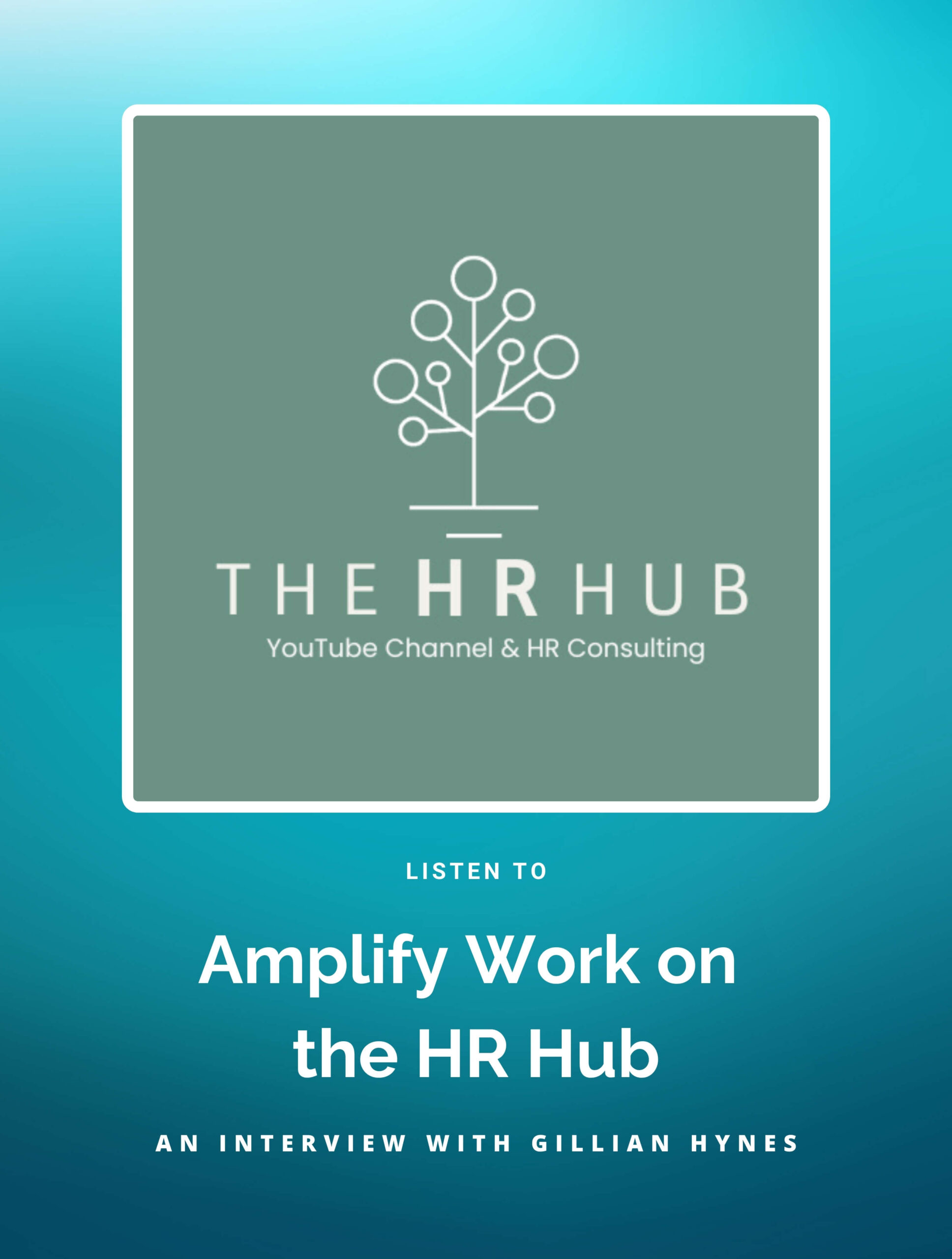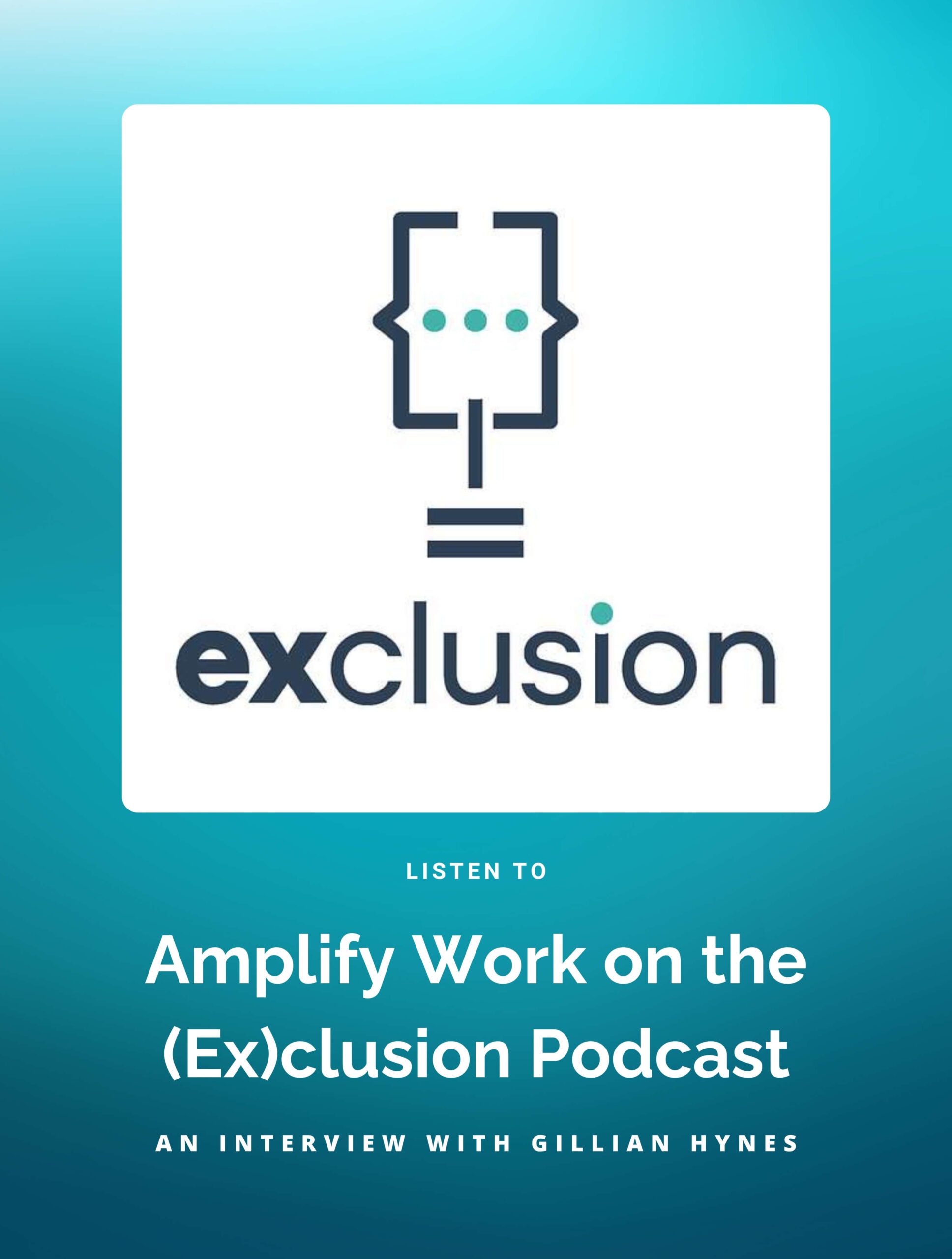
*This video originally featured Gillian Hynes as part of her work with Rise Consulting, where she contributed insights into Indigenous Inclusion and Reconciliation. Now, with Amplify Work, Gillian continues her commitment to advancing Reconciliation in HR practices, sharing insights and actionable steps for fostering inclusive workplaces.
In the second video exploring the intersection of Reconciliation and HR, Gillian Hynes discussed with Andrea Adams at HRHub the unique opportunities and responsibilities HR professionals have in advancing Truth and Reconciliation. Starting with leadership and grounded in respectful relationships, Gillian shares specific ways HR can integrate Reconciliation.
Indigenous Inclusion Overall
Inclusive means having a safe, positive environment where our differences are embraced, understood and valued. Gillian emphasizes the importance of respectful relationships between Indigenous and non-Indigenous Peoples. Non-Indigenous Peoples should support and amplify Indigenous voices, helping to drive systemic organization change in HR policies and practices.
Inclusion in the HR Lifecycle
There are a lot of touch points in the HR lifecycle and Gillian breaks these down into tactics that HR professionals can take. Importantly, the first step is tp understand biases and barriers in your HR lifecycle by listening to Indigenous employees via surveys and ERGs and fostering relationships with Indigenous communities to listen to what they want and need. Policies are critical to review as they set the standard for how we behave in an organization. Gillian recommends examining our Leave Policies to consider barriers to cultural practices and examine if there is enough flexibility to encourage Indigenous employees to participate in ceremony. She also recommends offering culturally relevant Benefits including traditional medicine coverage, trauma-informed supports and treatments, and Indigenous-focused therapy and therapists.
Starting with Leadership
Reconciliation starts with leadership, not with hiring. Leaders should demonstrate a personal commitment to Reconciliation, along with an organizational commitment, and aligning the organization’s vision with these commitments. Collecting and analyzing self-identification data is critical as it provides clarity as to who is represented in an organization and where improvement is needed.
Reconciliation isn’t DEI
When we create inclusive environments for one equity deserving group, we create inclusive environments for all. At the time of writing this blog, Gillian’s perspective has evolved since this video was created. Indigenous Peoples have inherent rights in Canada’s Constitution under section 35. Truth and Reconciliation is about acknowledging the colonial history and harm of Canada’s past (and present), it’s about action to repair relationships and change systems, and acknowledging the inherent rights of Indigenous Peoples. While Reconciliation supports DEI, it is distinct.
HR Professional and Trauma
Understanding intergenerational trauma is essential for HR Professionals. Gillian stresses the importance of empathy, having an awareness of what may be triggering, and conducting consent-based conversations to help Indigenous employees feel supported.
Reconciliation requires ongoing commitment from Leaders and HR Professionals, fostering a workplace where Indigenous inclusion is truly prioritized.
Read the next article
Read the Prev article
Amplifying People, Transforming Workplaces
We’re the team that partners with you to create workplaces that center people.
Every workplace is one-of-a-kind, and what ties them all together is that people are at the heart of every organization. We are a team of diverse HR, EDI and Reconciliation Practitioners who partner with organizations like yours to create customized, people-focused solutions that foster inclusion, build stronger teams, and create positive impact in the workplace.
Partnering with businesses across Canada, we offer human-centric solutions that drive business growth. Whether it’s through HR fractional or consulting services, strategic EDI plans, or Reconciliation Action Plans and Indigenous Community Engagement, our solutions are customized to meet your organizational goals. We’ll be with you every step of the way to create real, lasting change.
Our team has advanced HR, EDI and Reconciliation Practitioner skills from across a wide range of industries, along with diverse lived experiences. We hold Chartered Professional in Human Resources (CPHR) and International Association for Public Participation (IAP2) designations, ensuring wise practices and leading results.
We offer
Human-Centric Solutions
that drive business growth
Learn about our areas of practice
connect with us on linkedin
Fractional HR Services
On-going, strategic HR Leadership, tailored to your organization’s unique needs, without the full-time commitment.
Learn more
HR Consulting
Project-based HR solutions designed to address your organizational people needs and strategies.
Learn more
Learning and Development
Interactive and impactful learning experiences designed to share knowledge, build skills and inspire change in HR, EDI and Reconciliation practices.
Learn more
Reconciliation and Indigenous Engagement Consulting
Support in fostering respectful relationships with Indigenous communities through authentic community engagement and Reconciliation Action Plan (RAP) development.
Learn more
EDI Consulting
Expert guidance to create and implement equity, diversity and inclusion strategies that advances positive change in your workplace.
Learn more
Keynote and Speaking Sessions
Engaging speaking sessions designed specifically for your audience that spark dialogue on topics in HR, EDI and Reconciliation.
Learn more
Gillian on your team makes your whole team better.
Gillian’s excellence in HR shows up in every team, every organization, every meeting everywhere.
Kelley Lang
I Was Thoroughly Impressed.
Gillian was effective in understanding the First Nations’ needs and she was dedicated to delivering high-quality results.
Desiree Gervais
Gillian Hynes' work has been truly transformative.
Her generosity with her time and guidance in seeking the right perspectives were invaluable.
Nancy Cherniwchan
Gillian is an exceptional visionary leader.
Gillian’s fierce desire to see DEIB a reality gives her clients an edge to be ahead of the curve. I highly recommend Gillian.
Angel Sansregrett
It is with gratitude, respect and reciprocity that we acknowledge Amplify Work was founded in Moh’Kinstsis, Wîcîspa and Guts’ists’i, otherwise known as Calgary to settlers. We recognize the Indigenous Peoples, cultures, homes and oral teachings of the Treaty 7 signatories including the Blackfoot Confederacy, consisting of the Siksika, Piikani and Kainai nations, the Îethka Nakoda Nation, consisting of the Chiniki, Bearspaw and Goodstoney Bands, and the Tsuut’ina Nation. This is also part of the historic Northwest Métis homeland and to the Otipemisiwak Métis Government, Métis Nation District 5 and 6. We acknowledge as a remote team, we may work across many Traditional Territories, and we honour all Territories and Treaties as Treaty People in Canada.

Don't just take our word for it.
Amplify Work